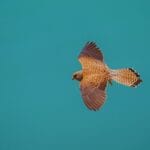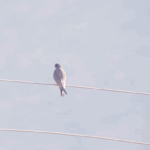On 24th January 2020 a national workshop was held in Tirana within the scope of “Balkan Anti-Poisoning Projects” and “Egyptian Vulture New Life” projects aiming at raising awareness among national responsible institutions on the scale, root causes and consequences of the illegal use of poison baits and wildlife crime in Albania. The national workshop “Anti-Poisoning and Wildlife Crime in Albania” gathered diverse key stakeholders including – representatives from Institute of Food Safety and Veterinary, Faculty of Veterinary Medicine, Ministry of Tourism and Environment, Ministry of Agriculture and Rural Development, Customs Office, OSCE Tirana, Regional Agencies of Protected Areas, conservation organisations, toxicologist, international conservation organisations. The program and sessions were divided into three different panels facilitated by the Ministry of Tourism and Environment and Albanian Ornithological Society (AOS). For further details on the agenda click – here.
The daylong meeting was opened through an opening remark by Minister of Tourism and Environment Blendi Klosi, who enunciated the importance of the engagement of national institutions in tackling wildlife crime and poisoning, moreover, Mr Klosi highlighted its collaborative approach and his willingness to approve the National Anti-Poisoning Road-Map in Albania. Later on, Ambassador of Spain to Albania, Mr Canelles over his opening remark spoke about the journey of Spain in tacking wildlife poisoning and why Albania should conserve its wildlife.
Following the 1st panel, the 2nd panel started with Prof. Dr Jose Antonio Donazar who held a presentation on the importance of science and knowledge as key factors to reserve negative population trends in long-lived birds. During the presentation, the main issues pointed out by Prof. Donazar were – methodologies of studying vultures population; vultures feeding strategy regarding the food sources; human footprint and supplementary feeding station; the main threats – poisoning and electrocution and who are the main contributors on vulture conservation actions.
Besides, international partners of Albanian Ornithological Society (AOS) were part of the meeting, respectively representatives from Vulture Conservation Foundation (VCF), Egyptian Vulture New Life (EVNL), Hellenic Ornithological Society (HOS). VCF representative, Mr Jovan Andeski highlights the outcomes of the work that has been done so far regarding wildlife poisoning in the Balkan Peninsula; EVNL team – BSPB headed two presentations consisted of the perspective and results of bird-crimes work in the Balkans and data collection on threats towards birds and wildlife; HOS representatives supervised two sessions – dogs unit for combating wildlife poisoning and the Balkan Anti-Poison database.
The main points addressed were lack of capacities to investigate and to prevent wildlife from poisoning and crime, lack of official database with poisoned cases and the importance of the engagement of national institutions in the efforts of tackling wildlife poisoning and crime. The results and outcomes of the meeting pointed out over the discussion and interactions among important national stakeholders helped on identifying needs, weakness and strengthens regarding the efforts in tackling wildlife poisoning and crime – henceforward, conservations actions and action plan need to be carefully planned and implemented to accomplish targeted point toward a long-term solution.
The main organizers of the national workshop “Anti-Poisoning and Wildlife Crime in Albania” are Albanian Ornithological Society (AOS), Ministry of Tourism and Environment and Embassy of Spain in Albania within the framework of the “Balkan Anti-Poisoning Project” (VCF) and “Egyptian Vulture New Life” (BSPB) projects.





